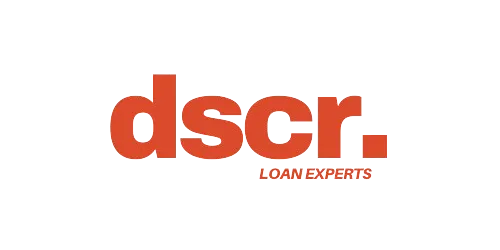
How DSCR Loan Banks Work: Financing for Investors Explained
For real estate investors aiming to scale their portfolios, Debt Service Coverage Ratio (DSCR) loans provide a unique and flexible financing solution. These loans focus on a property's cash flow rather than the borrower’s personal income, making them particularly attractive for those with unconventional income streams. Whether you're looking for investment property loans, short-term rental loans, or refinancing options, DSCR loan banks offer tailored programs to meet the needs of investors.
This guide combines everything you need to know about DSCR loans, their requirements, benefits, and how they compare to other financing options like hard money loans and traditional mortgages.
What Is a DSCR Loan?
A DSCR loan is a type of real estate loan where lenders evaluate the property's income-generating potential instead of the borrower’s personal income verification. At its core, the loan is assessed based on the Debt Service Coverage Ratio (DSCR), a metric that determines whether the income generated by the property is sufficient to cover its debt payments.
DSCR Formula:
DSCR = Net Operating Income ÷ Annual Debt Service
Net Operating Income (NOI): The property’s total income after subtracting operating expenses like maintenance, taxes, and insurance.
Annual Debt Service: The total yearly cost of loan repayments, including principal and interest.
For example, a property with an NOI of $125,000 and annual debt of $100,000 has a DSCR of 1.25. Most lenders require a minimum DSCR ratio of 1.25, ensuring the property’s income exceeds its debt obligations by at least 25%.
How DSCR Loans Work
Unlike traditional loans, where lenders prioritize the borrower’s personal finances, DSCR loans focus on the property’s ability to generate positive cash flow. This makes them ideal for rental property investors who rely on rental income to qualify for a loan.
Key Features of DSCR Loans:
No Income Loan: Borrowers don’t need to provide tax returns, pay stubs, or other income or employment information.
Flexible Loan Terms: Choose between fixed or variable rates to align with your investment strategy.
Higher Loan Amounts: DSCR loans often have higher maximum loan amounts than traditional mortgage loans, enabling larger real estate investments.
DSCR Loan Requirements
To qualify for a DSCR loan program, borrowers typically need to meet the following criteria:
Minimum DSCR Ratio: Most lenders require a minimum DSCR ratio of 1.25 or higher.
Loan-to-Value (LTV) Ratio: Lenders usually cap the LTV ratio at 75%-80%, meaning the borrower must provide a minimum down payment of 20%-25%.
Minimum Credit Score: A minimum credit score of 700 is often required to secure favorable interest rates.
Property Appraisal: The property must undergo an appraisal to assess its income-generating potential and financial health.
Rental Income Documentation: Lenders analyze the property's rental income and cash flow to ensure it can support the annual mortgage debt.
Operating Expenses: Borrowers must account for all operating expenses, including property management fees, taxes, and maintenance costs.
DSCR Loan Banks: Do They Offer These Loans?
Yes, DSCR loan banks do offer these loans, but they typically cater to established real estate investors and businesses. Banks evaluate the property’s service coverage ratio (DSCR) and its ability to generate sufficient cash flow for repayment.
Types of DSCR Loans Offered by Banks:
Commercial Real Estate Loans: Designed for the purchase or refinancing of commercial properties with a focus on the property’s rental income.
Investment Property Loans: Ideal for rental property investors, these loans are based on the property's income rather than the borrower’s personal finances.
Business Loans: For businesses seeking financing for expansion or acquisitions, banks evaluate the company’s cash flow and DSCR ratio.
Types of Properties Eligible for DSCR Loans
DSCR loans can be used to finance a wide range of investment properties, including:
Single-family homes
1-4 unit properties
Vacation homes
Commercial or multi-family properties
Rental properties
Fix-and-flip properties
New construction properties
Advantages of DSCR Loans
Banks bring unique advantages to DSCR loan programs:
Focus on Property’s Income: No need for personal income verification; the loan is based on the property’s income-generating potential.
Larger Loan Amounts: Borrowers can secure higher loan amounts, enabling larger real estate investments.
Flexible Loan Terms: Choose between fixed or variable rates to suit your financial goals.
Interest-Only Payments: Many lenders offer interest-only payment options, improving cash flow management.
Competitive Interest Rates: Compared to hard money loans, DSCR loan interest rates are more affordable.
Challenges of DSCR Loans
However, there are also some drawbacks when working with banks:
Higher Down Payment: Borrowers may need a minimum down payment of 20%-30%.
Stringent Requirements: Banks often require a minimum credit score and thorough documentation of cash flow.
Variable Interest Rates: Depending on the loan type, rates may fluctuate, impacting loan repayments.
Longer Approval Process: Compared to private lenders, banks often have a lengthier approval process for DSCR loans.
Alternatives to DSCR Loans
If you don’t qualify for a service coverage ratio loan, consider these options:
Hard Money Loans: Short-term, high-interest loans ideal for fix-and-flip properties or immediate financing needs.
Bank Statement Loans: Use bank statements to verify income instead of tax returns, perfect for self-employed borrowers.
Conventional Mortgages: Suitable for borrowers with strong personal finances and a stable income history.
Conclusion
DSCR loans are an excellent option for real estate investors looking to finance investment properties without relying on their personal income. By focusing on the property's income and cash flow, these loans provide a scalable solution for purchasing or refinancing rental properties.
While DSCR loan banks offer lower interest rates and established lending practices, borrowers must be prepared to meet stringent DSCR loan requirements. For those who qualify, partnering with the best DSCR lenders can unlock financing opportunities for real estate investing and long-term portfolio growth.


